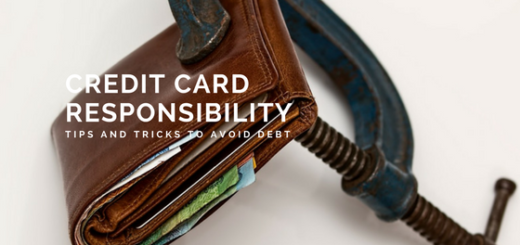Hard Inquiry vs. Soft Inquiry: How Each Impacts Your Credit Score
 Your credit score is a driving force in your financial future. A good credit score can help you achieve lower interest rates and higher credit limits when you apply for new lines of credit or loans. Many of the actions you take with your money can influence your score. Ironically, one these actions is applying new lines of credit. This requires doing a credit inquiry. A credit inquiry is a request to see your credit report. There are two types of credit inquiries—hard inquiries and soft inquiries. Fortunately, only one of these has an impact on your credit score. However, it’s still important to distinguish between the two types of inquiries. Here’s what you need to know.
Your credit score is a driving force in your financial future. A good credit score can help you achieve lower interest rates and higher credit limits when you apply for new lines of credit or loans. Many of the actions you take with your money can influence your score. Ironically, one these actions is applying new lines of credit. This requires doing a credit inquiry. A credit inquiry is a request to see your credit report. There are two types of credit inquiries—hard inquiries and soft inquiries. Fortunately, only one of these has an impact on your credit score. However, it’s still important to distinguish between the two types of inquiries. Here’s what you need to know.
What is a hard inquiry?
A hard inquiry (also known as a hard pull) occurs when a lender reviews your credit report to approve or decline you for credit. According to Experian, hard inquiries appear on your report for about two years and can have a slightly negative impact on your credit score. It’s important to note the negative affect on your score is only temporary.
When do they happen?
These inquiries only occur when you submit a credit application. They can’t be made unless you give your permission. Common hard inquiry occurrences include applying for a loan, mortgage or credit card. Sometimes if you’re in the process of buying a new home or car, you may be shopping around for the best rate. This results in multiple pulls in a short time. Most credit scoring models recognize this and therefore list multiple inquiries as one single inquiry.
What you should know
Though a hard pull on your credit report can lower your score, it doesn’t stay that way forever. Five categories determine your credit score. New inquiries only impact one category. If you’re practicing smart credit habits, a hard inquiry most likely won’t cause your credit application to be rejected by a lender. Hard inquiries here and there are common and understandable. However, a burst of hard inquiries on your credit report in a short period of time may be cause for concern to potential lenders. Applying for multiple loans or new credit cards in a short period of time may indicate financial trouble.
How to minimize impact
If you’re in the process of rebuilding your score, a small dip in your score may feel like a huge setback. Luckily, there are a few things you can do to keep your score on track and avoid it being derailed. First, don’t apply for anything you don’t truly need right now. If you don’t plan to use that credit card, or now isn’t the greatest time for a new car, just wait! A bunch of hard inquiries won’t do you any favors. Instead, only submit credit applications when it is truly necessary. Then, it’s important to remember that this is temporary. The dip hurts, but if you continue to pay your balances on time and avoid overuse you can overcome it. Also, stay on top of your credit activity. Check your report often to ensure all hard inquiries are your own doing and not fraudulent activity.
What is a soft inquiry?
A soft inquiry (also known as soft pull) is made on your credit report whenever you, another person or a company looks at your credit report for purposes other than giving you credit. Unlike a hard inquiry, a soft inquiry does not appear on your credit report. It also does not affect your credit in any way.
When do they happen?
A soft inquiry can occur when you check your credit report, submit to a background check, or a lending company pre-qualifies you for a new offer—to name a few examples.
What you should know
Soft inquiries aren’t linked to new credit, so you’re the only one who will see a soft inquiry on your report. Therefore, soft pulls can’t be used to determine your credit score. Checking your credit report or tracking your credit score will not hurt your credit score. In fact, these habits typically help you be a more responsible credit user. Soft inquiries are nothing to be afraid of.
The bottom line
If you’re not sure if an inquiry is hard or soft, ask! Reassess your financial situation if you’re worried you’re doing too many hard pulls. Don’t be afraid to ask for help. Before taking any action that could impact your credit score, decide if the impact is worth it and will still help you achieve your financial goals.


